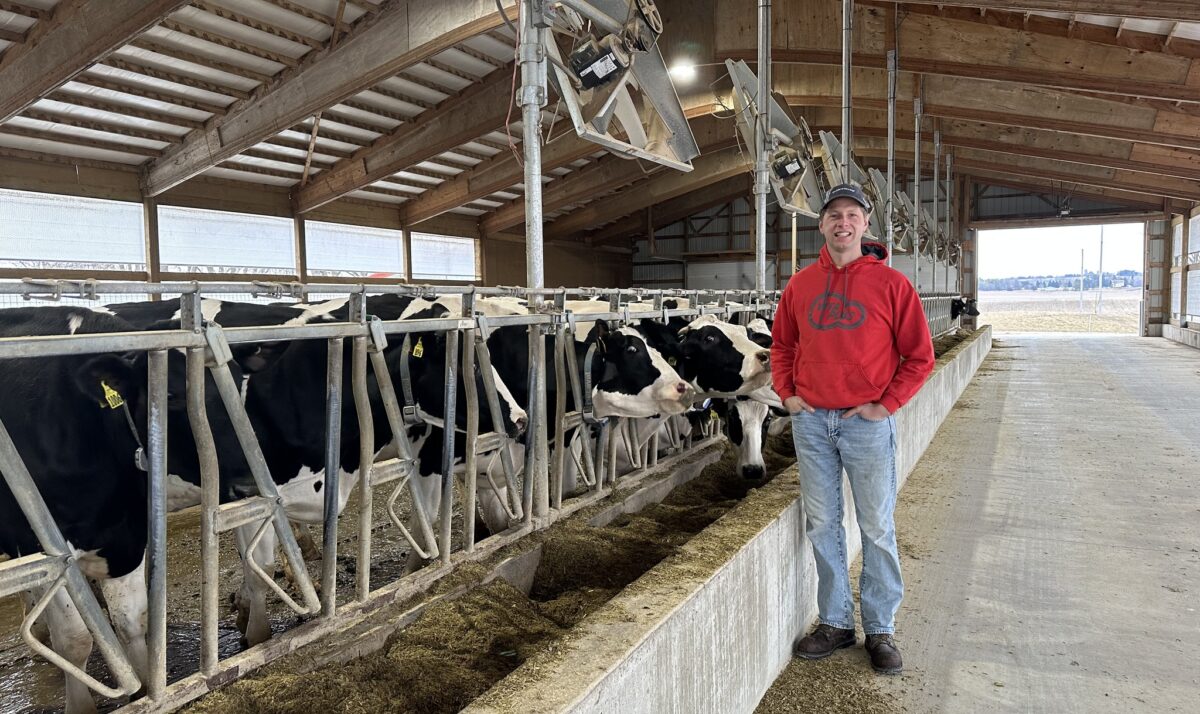
Congratulations to Kyle and Rachel Zwieg of Ixonia who were named National Outstanding Young Farmers earlier this spring. They are the seventh generation on the family farm that was purchased from the state of Wisconsin in 1856.
The family milks about 70 cows using robotics. They also operate 1,500 acres of crop land with autonomous technology. Kyle says the adaptation of new technology on the farm and conservation efforts, among other things, led them to be winners in the National Outstanding Young Farmer program.
The Outstanding Young Farmer Program began in 1954. Wisconsin’s first winner was named in 1952 and 67 state programs have been held since. Wisconsin has had 19 winners on the national level over the years, including the Zwiegs. The couple was one of four to get the title this year. The Wisconsin chapter hosted the 2023 National Outstanding Young Farmers Awards Congress in Appleton in February.
“We thought we were going to lose,” Zwieg laughs, noting that the other nine finalists were of the highest caliber. Getting to know the other ‘outstanding’ farmers is a part of the experience. Kyle says he’s going to stay in touch with them.
“We already have a text thread — I have a gentlemen in New York that I’ve gotten to know quite well, and we’ve been talking about drone implementation and different crop practice implementations,” he says.
Zwieg’s Maple Acres has seen a lot of change in 150 years, including a focus on conservation. Kyle says in 2010, they partnered with Tall Pines Conservancy and the state of Wisconsin to put a conservation easement on more than 230 acres of their farm to protect the land from future developments — keeping the land in agriculture.
“That really gelled well with our family goals… just to continue this 150-plus-year-old farm into the future,” he says.
The family also embraces technology. One of the largest changes on the farm happened in 2020, when the Zwiegs decided to transition to a robotic milking unit and a gate system that makes sure cattle are eating and getting milk when they’re supposed to.
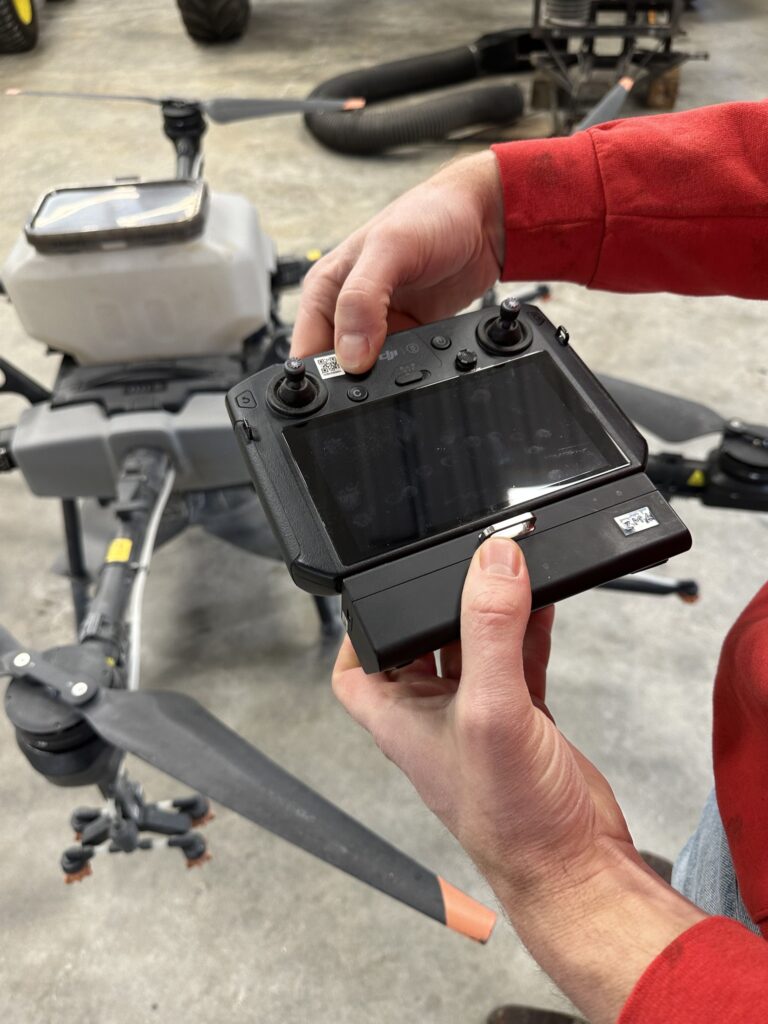
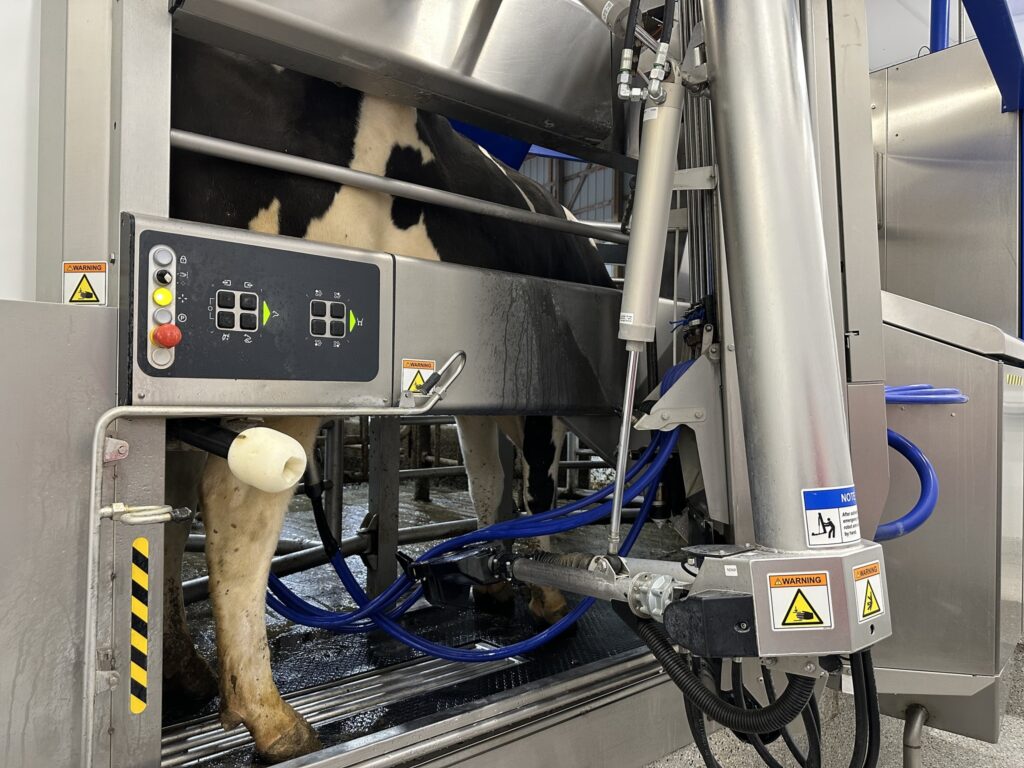
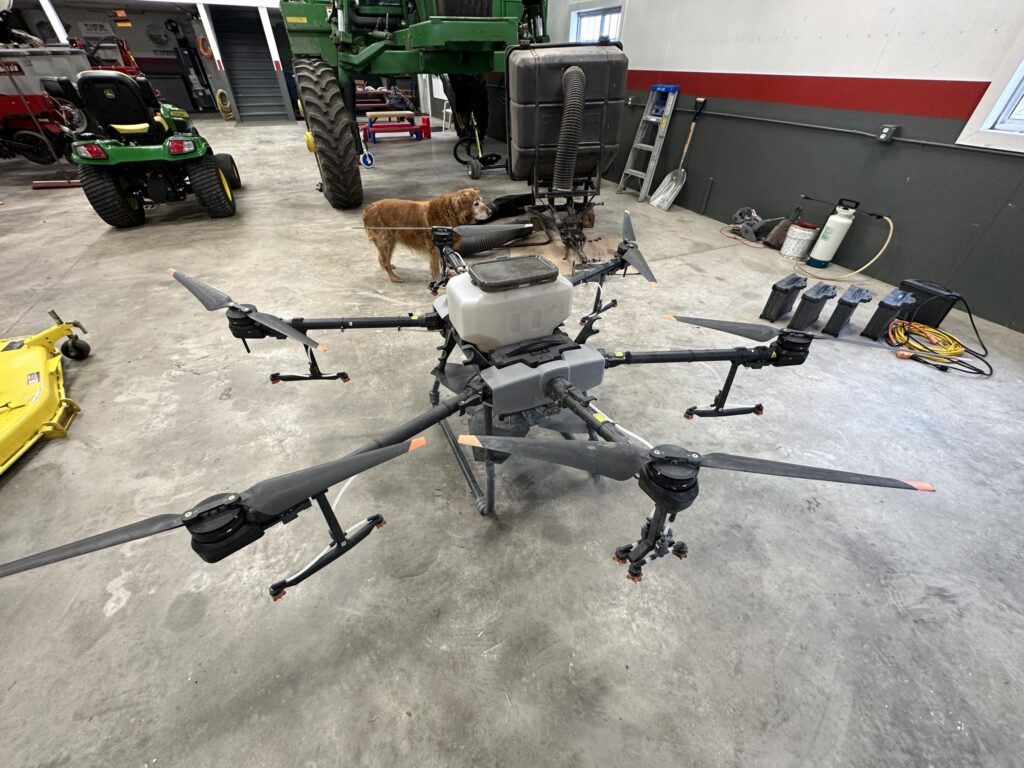

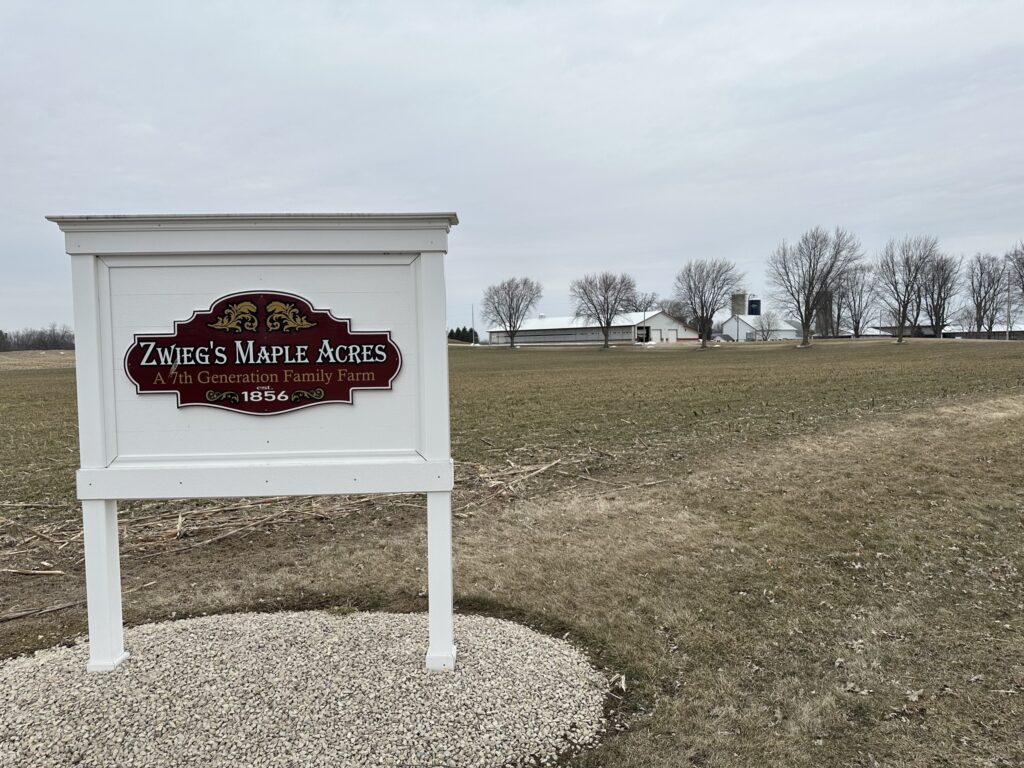
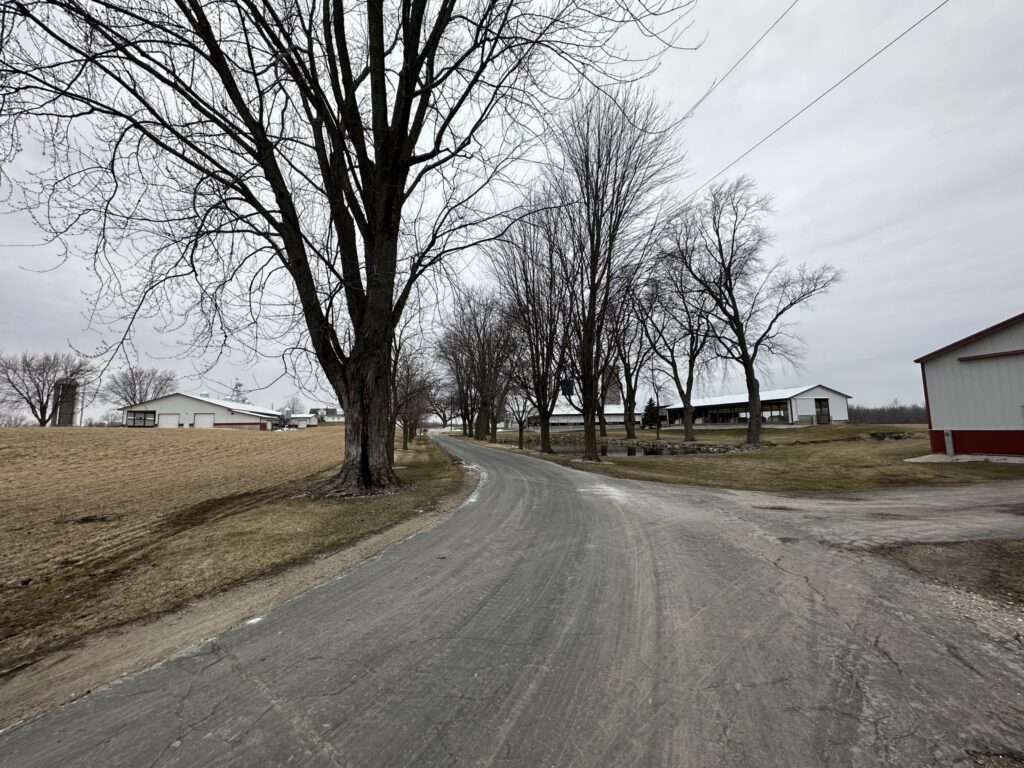
“Our barn is laid out in a circle with a series of one-way gates, where when she comes to a sort gate, the gate reads her ear tag and based upon her last milking interval, either directs her to a small pen, where the only exit is through the robot, or back to the feed bunk where she just continues eating or laying down at her free will,” Kyle explains.
He says it increases the ability to measure both the cows’ milking intervals and time allocation of the unit. He’s seen an improvement in farm productivity and quality of life for the family. The farm is also gleaning valuable information about their herd by collecting data.
“It can be data overload… you have to parse through what’s useful and what’s not,” he says, noting that he can look at overall cow health, udder health, milk production and trends on a per quarter, per day and per milking basis. “It creates indexes that I referenced as similar to a quarterback rating.”
Outside the barn, the Zwiegs utilize autonomous technology in the fields. Kyle sees the largest opportunities in fungicide application on corn, which requires a low application rate per acre and a tight time window; micronutrient and herbicide applications; and cover crop seeding because the drone allows you to plant into standing crop without damaging anything.
“It is more than evident that they will be taking over some amount of field operations from traditional rigs,” he says of drones.
What’s next for Zwieg’s Maple Acres? Kyle says he’s interested in implementing an autonomous TMR mixer in the next five years. Before that, the family is preparing to host the Watertown Agri-Business Club Dairy Breakfast in June: https://www.midwestfarmreport.com/2023/03/30/zwiegs-maple-acres-to-host-breakfast-on-the-farm/
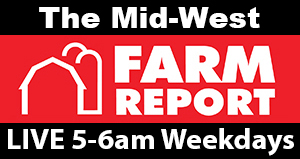
Leave a Reply